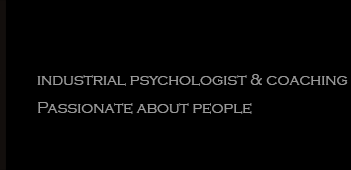 |
 |
nbsp;

Our service offering is tailored to meet the needs of both individuals and organizations. To this end, all facilitated sessions will be designed and structured having due regard to the convenience and particular needs of the client. We are associated with a network of professional industrial psychologists, trainers, coaches and organizational development consultants, which enables us to provide a holistic service offering and to efficiently draw on a wide range of expertise. Leadership Development If management is about getting things done, then leadership is about getting others to do things. A great leader can motivate whole populations, armies and companies. How do they do this? Leadership development is designed according to the development needs of specific leaders. Workshops are interactive, experiential and practical, enabling leaders to see their leadership style play out in a safe environment. Diversity Interventions / Transformation Transformation and diversity management programmes that isolate, intimidate and ignore people are self-defeating. If any person/ sector/ department or group feels threatened the process will be wasted and more so it could negatively impact your organisation. The opportunity to build is found in the wisdoms, uniqueness, talents, skills and histories of the group. The methodologies ensure that transformation is non-threatening, unifying and inclusive as possible. Learning is fun, motivational and exciting. Inclusivity has two main dimensions, firstly, everyone feels valued and valuable and secondly all levels of the organisation/ team participate fully in the program. Conflict Management Facilitation of conflict (groups or individuals) Workshops are designed to enable management to understand conflicting behaviors and to resolve conflict in the future. Team Optimisation Individuals are grouped and expected to work together, get along and be productive. This is the natural expectation of many organisations. Teams are living entities that evolve over time. Any changes to individual members’, will have an impact on the team as a whole. Change Management Change Management entails thoughtful planning and sensitive implementation. Above all, it entails consultation and involvement of the people affected by the changes. Change happens at an individual level. Change is the essence of all things, including organizations; yet at a personal level people deeply resist change. Participants will learn about the human dynamics of change, how to move themselves and their organizations through the natural resistance to change, and how to make transitions in organizations that are lasting and positive. The content is ideal for managers called upon to implement change initiatives. Emotional Intelligence Workshop We all have different personalities, different wants and needs, and different ways of showing our emotions. Navigation through this all takes tact and cleverness, especially if we hope to succeed in life. This is where emotional intelligence becomes important. Emotional intelligence is the ability to recognize your emotions, understand what they’re telling you, and realize how your emotions affect people around you. Emotional intelligence also involves your perception of others. When you understand how they feel, this allows you to manage relationships more effectively. Personal Mastery “Happiness is your birthright, and your mind is your most powerful ally in attaining it” - Prof SS Rao Personal mastery is about creating what one wants in life and in work. Continually expanding personal mastery is a discipline based on a number of key principles and practices: personal vision, personal purpose, holding creative tension between vision and current reality, mitigating the impact of deeply rooted beliefs that are contrary to personal mastery, commitment to truth, and understanding the subconscious. Feedback Effective Leaders develop the art of giving and receiving feedback. They describe observed behaviour and its impact without evaluation or judgment. Their intention is to support, not control and manipulate. Effective leaders share feedback in an authentic, candid and compassionate fashion with the goal of stimulating mutual learning and action. When giving feedback, leaders listen and ask questions, more than they tell. Psychometric Assessments Administration and feedback of various, applicable, psychometric assessments are done for e.g. Recruitment, leadership development, coaching, etc. |
|
|